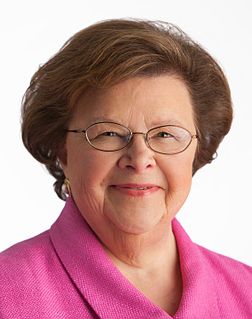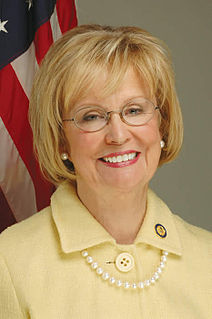A Quote by Barbara Mikulski
Women would be disproportionately affected by the privatization of social security. It is one of the most important safety nets for American women in old age, or in times of disability, to insure financial income for their families.
Related Quotes
The Social Security program is a pact between workers and their employers that they will contribute to a common fund to ensure that those who are no longer part of the work force will have a basic income on which to live. It represents our commitment as a society to the belief that workers should not live in dread that a disability, death, or old age could leave them or their families destitute.
It is with great satisfaction that I have signed into law the Social Security Amendments of 1961. They represent an additional step toward eliminating many of the hardships resulting from old age, disability, or the death of the family wage-earner. A nation's strength lies in the well-being of its people. The Social Security program plays an important part in providing for families, children, and older persons in time of stress, but it cannot remain static. Changes in our population, in our working habits, and in our standard of living require constant revision.
When women earn the money for the family, everyone in the family benefits. We also know that when women have an income, everyone wins because women dedicate 90% of the income to health, education, to food security, to the children, to the family, or to the community, so when women have an income, everybody wins.
Women are the majority of immigrants yet the minority of immigrant employment visas; immigrant and native born women who work in the service arena - such as domestic workers - are not valued for their work, making pennies on the dollar compared to male counterparts; and, women are disproportionately affected by family reunification policies.






























